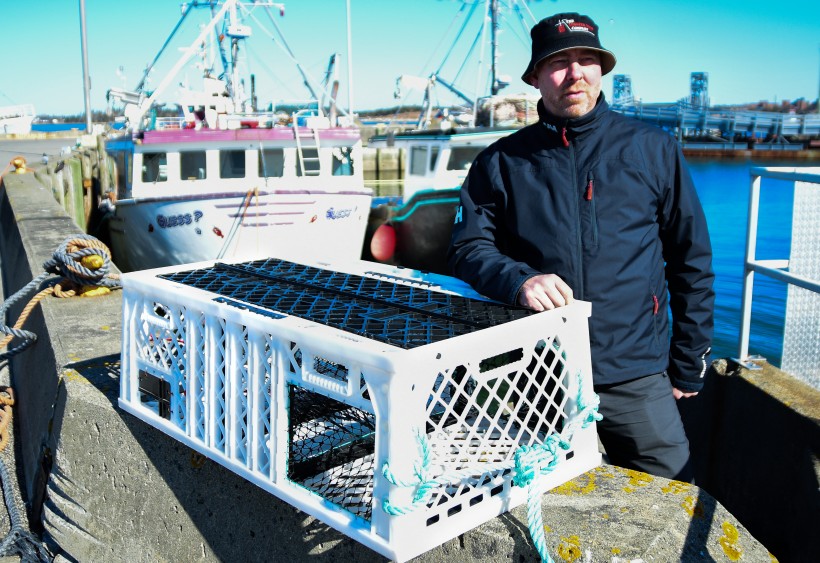The Lobster Trap Company, which aims to build a more robust trap than is now available, is making its first commercial manufacturing run of its plastic product this lobster season.
The Yarmouth-based company started taking orders three weeks ago and plans to produce at least 10,000 lobster traps for the 2019-20 lobster season along the southwestern shore of Nova Scotia. The new trap design – which meets regulations for use in Canada and the U.S. – would replace the wire-mesh components of current traps with polyethylene-based plastic.
The Lobster Trap Company CEO Scott Dauphinee said the new design should double the lifespan of the trap, with similar or better yields, compared with current wire-mesh designs.
“We haven’t worn one out yet,” said Dauphinee in an interview. “They’ve been fished for over two years now, and that means fished solid – not like here in Yarmouth where they fish them for six months and then they’re on the bank for six months. So they’ve actually been in the water for essentially four seasons now.”
In addition to longer lifespans, the traps are more environmentally sustainable. Dauphinee said the polyethylene used to build the traps doesn’t break down into microplastics like the polyvinyl chloride, or PVC, coating used in current mesh designs.
He said there are nine prototypes now being used by fishermen to test the traps in a variety of working conditions. The use of the prototypes exposes the industry to the new style of trap, said Dauphinee, and that putting the product into fishermen’s hands was key to the launch.
“They’re all kinda watching and seeing what’s going on,” said Dauphinee, adding that fishermen are always making mental notes of who is using new technology or trying different sizes or colours of traps.
The company worked for three years to develop and test the new lobster trap. Three months ago, The Lobster Trap Company moved on from the research and development phase to focusing on manufacturing to produce traps for the upcoming lobster season.
Dauphinee said he’s still negotiating for a space in Yarmouth to build the traps, but parts for the traps are already being built by The Lobster Trap Company’s partners.
The company has three employees, including Dauphinee, and is in the process of hiring workers to build the traps. Dauphinee said he plans to have 10 employees by the end of May.
Dauphinee is The Lobster Trap Company’s only shareholder, and he said he’s received non-dilutive funding from organizations like NSBI and Innovacorp, and support from Venture for Canada. The company has been working with Ignite Labs in Yarmouth, and since November it has had space at COVE in Dartmouth.
He is currently looking for strategic partners to help grow the business.
“I’m looking for another company to team up with that has interesting technology that supports the lobster trap – that’s always on the radar,” said Dauphinee about his plans to grow his company.
In terms of hiring, he said he is looking for “good people that show up for work and are passionate about building lobster traps that are going to change the industry.”










